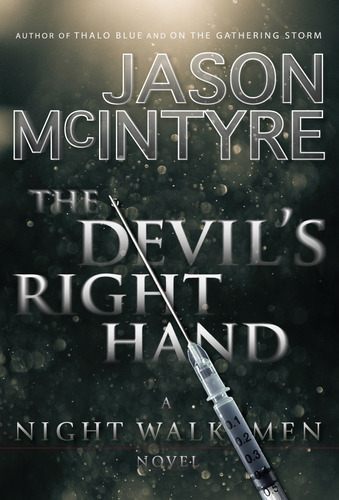Rachel Thompson's Blog, page 21
April 20, 2014
Combine Writing, Marketing, And Real Life. Now, Mix
Some fella I don’t know sent out a group email the other day, complaining that writing and marketing combined with real life is just too much, so he’s ‘deleting his book and shutting down social media and the blog’ until such time as he makes his millions to hire people to do it all for him.

FreeDigitalPhotos.net
I get it — it would be much easier to throw in the towel and walk away. But I couldn’t ever walk away from writing my books. My guess is, he got so overwhelmed that rather than hiring an assistant or consultant to help or teach him (which he may not have been able to afford anyway), or looking into some time-saving time-management applications, he threw up his hands and gave up.
Sigh.
Let’s deconstruct.
WRITING
The writing. The writing takes time (for most of us). We have real lives, we market our previous works, we attend conferences and travel to book signings … all of which is fun, exhausting, and cool (I mean, come on). However, it does take away from our writing time. Have you ever tried to write while squished in the middle seat on a small plane to Winnipeg during a storm?
I released my latest book, Broken Pieces (currently free on Amazon for a few days — no Kindle required) in December, 2012. 2012! That’s like 14 in publishing years. Yet, it still has legs and continues to win awards and pay my rent. I’m not bragging — it’s my third book and I’m honored and thrilled to have written something that resonates with so many people. But…what have I done for you lately?
Lots of consulting and marketing (more below), but I’m also writing for at least one hour per day on Broken Places, the next book in the ‘Broken’ series. It’s coming along, but I don’t see it releasing before fall. I’m not personally willing to rush it out to meet some imaginary ‘best by’ date. I know some authors who release a book every three months and good for them. Seriously. That’s just not me. It’s not how I work. And, as I always remind myself, it’s not a competition.
Kids, my business, my family, laundry and kitchen, burning dinner…it’s all pulling at me, just like it is with most writers. I’m not different or special — my point is, I have to protect my writing time. It’s okay to be selfish when it comes to my work if that’s what it takes to get to it.
MARKETING
No doubt, marketing takes a huge chunk of time. Blogging, updating my websites (this one and my business site, BadRedheadMedia.com), promotions, advertising, reviews, guest blogs, all the articles I write (BookPromotion.com, Huffington Post, San Francisco Book Review, etc.), not to mention my business clients, combines to take me away from that ‘balance’ of marketing and writing.
What to do? After coffee, I check all the sites and my emails, put out any fires, and then shut it down for an hour (I’m always available to clients via phone). I just see no other way around it. Facebook in particular is a huge time suck — not because I love it (it’s fine, whatever), but because of the sheer number of notifications and interactions required to maintain an active presence. My personal favorite is Twitter, and Pinterest is a close second, but even that I limit myself to non-writing hours.
How do I manage it all? I use a combination of three sites: Hootsuite (I schedule in quite a bit), Pluggio (I love their dripfeed feature), and ManageFlitter (for growth and deleting fakes, eggs, etc). I’ve written about each one previously, but they all have free options for you to try out, and I can’t recommend them all highly enough. You need these programs to manage, grow, schedule, and interact across your platform in the most efficient (yet still interactive) way possible. Remember: social media is not one-way communication to sell sell sell your books. It’s a wonderful way to interact and build relationships.
I can guarantee that the fellow above did not use any kind of time management system to help to manage his social, which usually has the biggest learning curve and takes the most time. However, social is our generation’s ‘word of mouth,’ and is critical to any author’s success. So stop whining and get on it.
REAL LIFE
I find that most authors have pie in the sky expectations of their first book. They want it to pay their house payment or rent, send their kids to college, and cover any and all advertising and marketing costs. Not even Stephen King of Anne Rice had that kind of success with book one — and they were picked up by large publishing houses and had lots of media support! Why does everyone think that one book will make them?
I never thought that. I figured if anyone reads me, great. If I can connect with folks and develop a fan base for future books, even better. Publishing a book isn’t a magical way into some nebulous millionaire’s club. It’s a means to an end: getting your work out there. If you’re using social media to ‘push’ your work on an uninterested, undeveloped fan base, you’re not helping your sales and you’re likely spamming, which can lead to account suspensions.
I have friends who have written 30 books, have made it to the NYTimes Best Seller lists, and still work full-time jobs as lawyers and accountants and cooks. Writing as a living isn’t easy — who said it would be? I’d like to meet that person and ask them.
NOW MIX IT UP
Use your real-life experiences in a way that can help others. From a karma standpoint, isn’t that what this whole mortal coil is all about anyway? That’s why I started #SexAbuseChat (Tuesdays, 6pm PST/9pm EST) with survivor/therapist Bobbi Parish. We’re opening up a growing dialogue with survivors and families of survivors. Some of them may or may not read my book and that’s okay — that’s not what this is about.
I’ve also been able to start #MondayBlogs (in November, 2012). I wanted one day devoted to bloggers (any topic is fine). Blog any day, but share on Mondays using the hashtag AND return the favor by retweeting others. It’s grown so dramatically, thousands participate each week and generate anywhere from 5-8,000 tweets on Mondays! These are my ways of giving back. I make no money, charge no fees, and everyone is welcome.
Point is, all of it is hard. All of it matters. None of it is easy. Adjust your expectations, fellow authors…and above all, keep writing.
Related articles across the web
 9 Twitter Basics You May Not Know
9 Twitter Basics You May Not Know How Much Can Indie Authors Realistically Make?
How Much Can Indie Authors Realistically Make?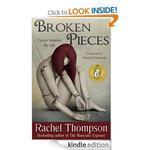 “How Much Can Authors Make?” Great post by Rachel Thompson ( @RachelinTheOC ) #ASMSG #IAN1
“How Much Can Authors Make?” Great post by Rachel Thompson ( @RachelinTheOC ) #ASMSG #IAN1 What Works, What Doesn’t In Book Marketing
What Works, What Doesn’t In Book Marketing You Owe It To Your Readers To Be Interesting
You Owe It To Your Readers To Be Interesting How To Tweet Without Being An Annoying Spammer
How To Tweet Without Being An Annoying Spammer Read Buffer’s Rejected Y Combinator Application
Read Buffer’s Rejected Y Combinator Application
April 15, 2014
The 5 Biggest Risks I’ve Taken As An Author
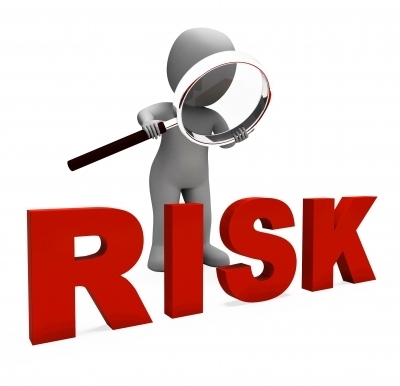
Image courtesy of Stuart Miles / FreeDigitalPhotos.net
Post originally published on Jessica Bell’s The Alliterative Allomorph. Reposted with permission. Written by Rachel Thompson.
I’ve written a lot of blog posts. A lot. A lot, a lot. Yet, nobody has ever asked me before what the five biggest risks I’ve taken as an author are, til now. So thank you Jessica for the opportunity to write for you and for making me dig deep.
Let’s deconstruct.
1) Telling my real story. I started blogging in 2007-ish, and mostly it was a way to connect with family and friends far and wide. However, I soon developed my ‘voice:’ a sarcastic look at relationships, love, and all the ups and downs that go with that.
Following that humor route, I wrote my first two books of humorous essays. Though they both did quite well, as I started the third book I found myself wandering off to some of the more serious situations I’d experienced, and not the happy stuff either — having an almost uncontrollable desire to get it all down, triggered by the suicide of an ex-lover.
Childhood sexual abuse, loss, date rape… not exactly dinner conversation, but as I stared down fifty, I decided it was time. As often happens when you open yourself up, I happened upon a wonderful quote by author and professor Lorrie Moore (Elle Magazine): ‘Write something you’d never show your mother or father.’
That struck me in the gut. I had to go there because I knew I’d held myself back from going that deep before, using humor as a way to mask my grief and shame.
The result is my current release, Broken Pieces, currently #1 on the Women’s Poetry list on Amazon, and in the top 25 on Dysfunctional Relationships (a dubious honor?), but one I will take. The book has won seven awards and led me to a book contract with hybrid publisher, Booktrope, selling far more than any of my previous work.
2) Self-publishing my books. When I first decided to write books, I knew very little about self-pub – heck, about publishing in general, except that I loved to read. Despite having 15+ years in soul-sucking Big Pharma in marketing and sales, learning all about self-publishing became a full-time job.
I knew that I wanted to do it right, and I also knew that while I had no doubt about my writing abilities, I knew I wasn’t perfect and needed help with things like editing and structure. Most authors know by now to hire an editor (hint, hint), and I started researching to find someone who could be brutally honest with me. Luckily, Jessica Swift found me (on Twitter), and we connected at a level I cannot explain really, except to say except to say that it’s a gift.
I can’t stress enough how important it is to invest in your work with professional editing services, along with hiring a graphic artist, proofreader, and formatter. You may think that cutting corners will save you money, but you’re missing the point: your book won’t sell. It’s on you to make your book as spectacular as possible before anyone ever sees it.
Self-publishing isn’t a simple ‘cut and paste’ and call it a book. Two agents contacted me(via Twitter), I’ve taken meetings, signed with a publishing company (while I self-publish my eBooks, I signed for print only).
Self-publishing is a wonderful option if you’re willing to treat it like a business and not a one-off project.
3) Using my voice and platform. I didn’t write Broken Pieces with any notion of fame or glory or big bucks. I wrote it because I needed to. What I didn’t realize at the time, and what has been by far the biggest benefit or the book’s release, is that I’ve become a voice for other survivors.
Sadly, many survivors still live with their shame daily, have never spoken publicly about their ordeal, and suffer in silence from PTSD, addictions, shame, dissociation, and potentially risky behavior as a result. My goal has always been to help others, but I wasn’t really sure how.
I’ve now started a private, ‘secret,’ Facebook group (survivors of childhood sexual abuse only) and we’re up to about 50 members – mostly women. I’ve also started a weekly #SexAbuseChat on Twitter – every Tuesday at 6pm PST/9pm EST. Anyone can join and we encourage family members to join also – participate or simply lurk.
The risk in doing this is that I’ve opened myself up to criticism – a small portion of people still feel these topics shouldn’t ever be discussed in an open forum, or that I’m exploiting my situation for some kind of profit. I understand the hesitation – it’s not exactly dinner conversation – but I figure if someone has an issue, they don’t have to participate in my chat or buy my book. I’ll keep on writing and connecting with others regardless.
4) Starting my business. As a result of my experiences with my own three books (all #1 bestsellers on Amazon at one point – on various lists, even hitting the top #100 overall paid list, too!), I decided to combine my marketing and sales with new skills like social media and other author marketing concepts and start my business, BadRedhead Media, in 2011.
I am not a guru. I never, ever refer to myself that way because that assumes I’ve nothing left to learn, which couldn’t be further from the truth! But I love to share what I’ve learned – the good and the bad – on my Twitter and Facebook, in blog posts, and with clients who are looking for customized help.
As a result, I now write regularly for The Huffington Post (Books section), Self Publisher’s Monthly, BookPromotion.com, and the San Francisco Book Review, and I’m honored to cohost a weekly Blog Talk Radio show with AudioWorld’s Bennet Pomerantz.
Sure, I have plenty of critics who disagree with how I do things and that’s fine – as long as I continue to sell books and my clients do also, and I keep connecting with people, I figure I must be doing something right!
5) Honesty. Part of being a nonfiction writer and having a busy author platform is that I put myself out there, and some people don’t like that for whatever reasons. I’ve had my share of stalkers, haters, and bullies.
I’m always fascinated by people’s behavior and motivations. I share my personal stories, as well as my business experiences — mostly to help other authors learn what I have to save them time and money. The downside is that everyone has their own opinion of how I should do things. I’m not sure if that’s because I’m a female succeeding in a ‘man’s’ world, or what. I honestly don’t spend too much time on worrying about it.
Regardless of whatever negativity I encounter, I keep doing my thing. Taking it personally isn’t an option because the work I do is bigger than me — I will continue to advocate for survivors of childhood sexual abuse, to help authors learn how to use social media and understand the marketing options out there with free tips and articles, sharing what has worked for me and for my clients, and what hasn’t.
Ultimately, life is risk, as is writing or creating any type of art. It’s subjective and you will not please everyone. And that’s okay! I wouldn’t change a thing.
Related articles across the web
 Does Negativity Work As Motivation For Writers? Maybe.
Does Negativity Work As Motivation For Writers? Maybe. Survivors of Sexual Abuse Chat
Survivors of Sexual Abuse Chat How Compassion Can Heal Shame from Childhood
How Compassion Can Heal Shame from Childhood You’re An Adult. Write Like One.
You’re An Adult. Write Like One.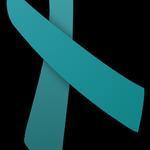 You Can Make a Difference
You Can Make a Difference
April 8, 2014
Survivor by guest @AngieRobinson90

Image courtesy of FrameAngel / FreeDigitalPhotos.net
I was sexually assaulted in 1986, but I didn’t call myself a survivor until 2010. It took twenty-four years for me to believe that what happened that night was really rape and to finally allow myself to feel and to heal. I’m sharing my story so that others who are suffering in silence may come out of the shadows and see the light of hope and healing.
As a college freshman I was eager to shed my awkward and shy persona from high school. On weekends, I went out with girls from my dorm to experience college nightlife, and we usually ended up at fraternity parties, since they were within walking distance. Dancing, drinking beer, and talking with guys added to a newfound freedom from strict curfews and overprotective parents.
One night, however, things changed. My girlfriends and I were dancing at a fraternity party when a guy took an extra interest in me. He suggested we go somewhere quieter so we could talk, but I didn’t want to go to his room, so he led me into the men’s bathroom. The only ripple of discomfort I felt was the strangeness of being in a bathroom while men used the facility. I had no fear. I wasn’t drunk, he wasn’t mean, and I felt like I was in control of my circumstances. In my naïve mind, it was virtually a public place, just a little quieter.
When he pushed me against the tile wall and kissed me, it was more aggressive than tender. Before I could do or say anything he grabbed my hair and pushed me down. I had never done anything but kiss before so I had no idea what was happening even as it happened. I struggled. I cried. I pushed away. I couldn’t scream. Finally he let go, and I dropped to the floor. Crying and confused about what had happened, I waited for someone to rush to my side. After he left, I used the tiny sink to wash him off of me as some guys looked on. No one said anything.
In the following weeks I suffered in silence, bathed in shame and disgust. I had bouts of rage, throwing things in the room and punching the walls. My drinking escalated to the point where I drank every day, I skipped classes, and on occasion I hid in my closet with a fifth of whiskey. My self worth, self-image, and self-respect plummeted as I careened down a path of self destruction. My twisted logic didn’t see the incident as the cause of the subsequent bad behavior, but rather it all began to blend into believing that I was just that kind of person.
By some miracle, the intense self-loathing and suicidal wishes decreased enough in the following years that I was able to live a relatively normal life complete with a husband and three children. What I didn’t realize was that my continued drinking was helping to mask my deep feelings of shame for what happened and what became of me. I never spoke of the incident, and I never spoke with complete honesty about my freshman year. I repressed. I moved on. I didn’t heal.
Ultimately, the crutch of alcohol ended up being the sword with which I was killing myself. I wanted to die. I hated who I was, where I had been, what I had done. I felt like my husband and kids deserved better than me, but instead of dying, I got sober.
After two years of sobriety, revolting visions plagued me, and I couldn’t stop crying. The intensity was greatest in the shower, and I couldn’t scrub the memories off my skin. I was angry at myself for overreacting about a two-decades-old incident and allowing old memories to create fresh pain. I was mature. I was sober. I had a support network. I knew how to deal with feelings, but these feelings were overwhelming and paralyzing, so I sought help through the local Sexual Assault Center and a psychologist.
I fought against calling my experience rape. I minimized it since I was fully dressed, there was no weapon, I was kissing him just prior to the assault, and because I wasn’t hurt. I was embarrassed that I felt traumatized about something that wasn’t nearly as bad as what others experienced.
Because I struggled to justify my feelings, my therapist suggested I write what happened using a third person vantage point. Looking with compassion at the wounded girl, I became enraged. It was a remarkable turning point to accept that I was that girl, and I deserved to heal. Finally, I was able to turn the anger toward the person who deserved it – the man who forced himself on me and changed my life forever.
Yes, the moment was fleeting and was only a drop of time compared to my whole life, but that instance distorted my life’s path. A sheet of paper that gets crumpled and then flattened again is still a sheet of paper, but the creases remain. Learning about the long lasting consequences of sexual assault, and talking with other survivors was crucial to my recovery, so I have a desire to pass along the hope that was shared with me.
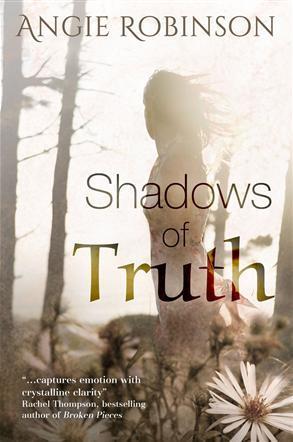 My therapeutic writing led me to write Shadows of Truth, a novel about facing and accepting the wreckage in life caused by a traumatic experience and ultimately showing how desperation can ignite courage and deep pain can lead to great strength.
My therapeutic writing led me to write Shadows of Truth, a novel about facing and accepting the wreckage in life caused by a traumatic experience and ultimately showing how desperation can ignite courage and deep pain can lead to great strength.
Although every detail in Shadows of Truth is fictional, the feelings and reactions are similar to those on my journey. The story is painstakingly realistic in its description of the downward spiral into rage, revenge, and depression as well as the elation of finding freedom from the burden of the truth through forgiveness and grace.
You can find Shadows of Truth at your favorite online retailer.
About the Author: Angie Robinson is an author and speaker living in New Jersey. Her goal is to shine the light of hope in the darkness and to share the beauty of embracing the goodness and fullness of life.
Angie Robinson is an author and speaker living in New Jersey. Her goal is to shine the light of hope in the darkness and to share the beauty of embracing the goodness and fullness of life.
Learn more about Angie at angierobinson.com and connect with her on Facebook and Twitter.
Related articles across the web
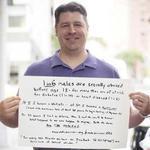 The Crossroads Between Healing and Justice
The Crossroads Between Healing and Justice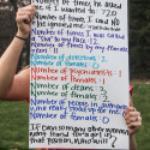 Sexual assault survivors speak
Sexual assault survivors speak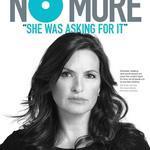 ‘NO MORE Excuses’ Mariska Hargitay recruits Law & Order
‘NO MORE Excuses’ Mariska Hargitay recruits Law & Order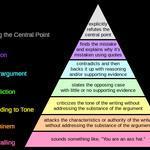 Hierarchy of Disagreements
Hierarchy of Disagreements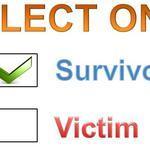 Victims vs. Survivors: The harm in defining ourselves as “thriving”
Victims vs. Survivors: The harm in defining ourselves as “thriving”
April 6, 2014
But That’s Not “Real” Depression by guest @MsBessieBell

Image courtesy of Ambro / FreeDigitalPhotos.net
Today please welcome author and editor Jessica Bell to the blog. Jessica has a powerful story about depression and the pattern it takes in her life. If you are having suicidal thoughts please call the National Suicide Prevention Lifeline at 1-800-273-8255.
___
Sometimes I get told that I’m not “really” depressed because I am not suicidal, or because I haven’t been officially diagnosed as such, or because I’m not taking anti-depressants, or because I haven’t ever seen a therapist. “You’re not depressed,” they say. “You’re just feeling down. We all get down now and again. You’ll get over it.”
But you know what? I don’t just get over it. And I am not just “feeling down.”
To be honest, I don’t really care whether people think I’m “depressed,” or not. I don’t talk about it often. But I do know that it’s not something that is going to go away because there is a clear pattern. And I have struggled through this pattern every single month since puberty. That’s almost 20 years. That’s 20 years of intermittently hating myself, and my life, and wanting to throw everything away to start from scratch, because I somehow think that it’s the perfect solution. Shutting everything and everyone out is always the perfect solution. Right? Of course not. But I often think it is.
The pattern goes like this:
Happy Days
“I am so lucky. I have such a great job. I have time to write and do the things I love. I have a great home. Oh my goodness, look what a beautiful day it is! Doesn’t the air smell amazing? I could stand out on my balcony, under the sun, smelling the air with a silly smile on my face, with my eyes closed, for hours. Because I am just so happy! So happy! I love my life. I have everything I want. I am so so lucky!”
Normal Days
I get the things done I have to get done. I don’t smile. I don’t care. I am. I just am. I do the dishes. I cook (maybe). I tick things off my to-do list. I don’t feel it. I see it. My life, that is. Moving at a steady pace, as I somehow watch from above, it’s all happening as it’s meant to. Because I don’t feel. I don’t really care. What was it you just said? Oh, yes, of course. I’ll do it right away. I eat. I work. I eat. I watch TV. I go to bed. I read. I kiss my husband goodnight. I get through the day without feeling very much. Thank bloody goodness for that.
Shitty Days
I can’t lift my head off my pillow in the morning. Is it still night, or is it day? Just another half an hour and I’ll get up. Or not. It’s getting late. I really should get up. I get up. I make myself coffee. I stare at the kettle even once it’s finished boiling and consciously tell myself to snap out of my trance. I have a headache. Again. A strong one. It’s this stupid city. I’m sure of it. I need to get out of here. I need to live in a different country. Or maybe by the sea. Isolated. So I don’t have to talk to anyone. Maybe in the mountains. I could grow my own veggies and quit my job. Live off the land. What are you talking about? You can’t even stand doing the dishes! Snap out of it. Now. I hate my life. No. I am better than this. Just ride the wave. It’s coming. It’ll stay. Then it will go. But who cares? It’ll come again. That happy day will come again. Just get to work. I work. Sort of. Most of the day is spent staring and daydreaming of a better life.
The Really Bad Days
I jump in the shower first thing in the morning, despite usually showering at night. And I cry. So he doesn’t see. Then I can blame my red face on the hot water. I give myself a headache because I hold in the sound. I cry until I can’t distinguish my tears from the water. I get out of the shower and wrap the towel around me. I stand there. Dripping. Staring at my feet. Until I am almost dry. Then I force myself to get dressed. An equal amount of time is spent staring at my clothes. I just put my pyjamas back on.
Then I sit down to work. I push through it, somehow, trying to ignore the endless hollow tunnel that runs through my body, echoing the tears I shed in the shower. There’s a big ball of emptiness that tumbles through the tunnel. It divides into two. One part sits right below my ribs, and one part at the back of my throat. They both expand and expand until it hurts so badly that all I want to do is lie in bed with the light off, and the door shut, in silence, in darkness, so I can cry some more, so I can protect the balls of emptiness. Because suddenly I want to nurture them.
The trouble with the balls of emptiness is that they’re kind of addictive. I want them to go away, but at the same time, I want to succumb to the power they have over me. So I stop work early. And I give the balls of emptiness what they want: A bed. Solitude. Darkness. Silence. Now the balls of emptiness are in their element, where they thrive, and they start talking to me. They start saying things like, “If you just packed a bag, and jumped on a plane to anywhere tonight, you could pretend you never existed, and just become someone else, in another place, and start fresh.” And then I say, “But what about my family? They would be devastated. I can’t do that to them.” The balls of emptiness realize that I will not let them take over and they begin to ease the pressure. Just a bit. And I get out of bed, to make myself something to eat, because I realize I haven’t eaten anything all day and it’s already dinner time.
I eat. I sit on the couch next to my dog. And I talk to her. Whisper in her ear how much I love her. And cry. And ask her why the fuck everything has to be so hopeless. Make it go away. And I cry even more into my dog’s fur. And she licks my tears away. And I realize, that if I left, I would miss my dog too much. My dog! Because the dog is the only being in this world who truly listens to me, and doesn’t judge, and gives me unconditional love. And then the dog does something that makes me smile. And I remind myself it’s a pattern, that I have to ride the wave. It’s a wave. It’s a pattern. It’s a wave. It’s a pattern. The happy day will come.
Then the happy day does come again. And I feel great. I feel blessed, and loved, and so lucky to have such a wonderful life. Again.
But the saddest thing is, there’s always a moment, during that happy day, when I realize the “happy” is just a part of the pattern. And maybe that’s not real either.
Imagine if people said, “You’re not happy. You’re just crazy. We all get crazy now and again. You’ll get over it.”
I can’t imagine that going down very well.
I guess my point is this: You don’t know what goes on behind the scenes in other people’s lives. I certainly don’t make these feelings public at the times I am feeling them. Just keep an open mind. Someone is always struggling with something, be it depression, a terminally ill family member, or simply one of those bad hair days that makes the whole world feel like it’s conspiring against you. No matter what the problem, it means a great deal to the person experiencing it, and you have no right to say, “You’ll get over it.” Maybe they won’t. Ever.
Next time you think you are making assumptions about somebody, take a step back. Think. Listen. And try to be understanding.
Side note
Why I haven’t gotten help:
1. I don’t trust doctors. Doctors prescribed my mother Valium for a “back problem” which was caused by withdrawal symptoms of a similar drug in the first place. Then prescribed her more drugs to get rid of the side effects, because in those days, they didn’t know the truth about benzodiazepine withdrawal. There are always new and better drugs. And no-one ever really knows what kind of long-term effects they will have on people down the line until someone experiences it.
2. I believe that drugs for depression only temporarily soothe the problem, are way too addictive, and leave you in an even worse state when you stop taking them. My mother was addicted to Valium for 20 years. I saw, first hand, what those kinds of drugs do to people. Explaining the side effects of this would be a whole other post, but if you’re interested, you might like to read this.
3. I don’t need a therapist. I’ve taught myself how to ride the wave. And I am coping fine.
About the Author: Jessica Bell, a thirty-something Australian-native contemporary fiction author, poet and singer/songwriter/ guitarist, is the Publishing Editor of Vine Leaves Literary Journal and the director of the Homeric Writers’ Retreat & Workshop on the Greek island of Ithaca. She makes a living as a writer/editor for English Language Teaching Publishers worldwide, such as Pearson Education, HarperCollins, MacMillan Education, Education First and Cengage Learning.
Jessica Bell, a thirty-something Australian-native contemporary fiction author, poet and singer/songwriter/ guitarist, is the Publishing Editor of Vine Leaves Literary Journal and the director of the Homeric Writers’ Retreat & Workshop on the Greek island of Ithaca. She makes a living as a writer/editor for English Language Teaching Publishers worldwide, such as Pearson Education, HarperCollins, MacMillan Education, Education First and Cengage Learning.
Connect with Jessica online:
Website | Retreat & workshop | Blog | Vine Leaves Literary Journal | Facebook | Twitter
April 2, 2014
What Everyone Ought to Know about Birthmothers by guest @jcutlerlopez
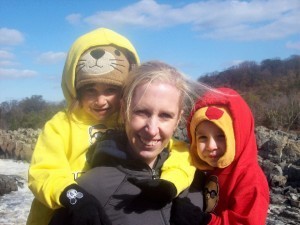
Jenny with Sophia and Orion at Great Falls National Park
At twenty years old, I found myself pregnant: living thousands of miles from family and friends, no money, and abandoned by my on-again, off-again boyfriend. Nine months later, I placed my son for adoption and entered the most painful chapter in my life. But as Lois Lowry writes, “The worst part of holding the memories is not the pain. It’s the loneliness of it. Memories need to be shared.” Here are the lessons I learned from my experience as a birthmother.
Adoption is the Last Resort
While others wrapped gifts and drank spiced eggnog upstairs, I discovered I was pregnant in a basement bathroom while home for Christmas break. I returned to the other side of the country to start another semester, but my roommate bailed and I couldn’t afford rent on my own. Over the next month, I slept on couches and attempted to talk to the baby’s father over public payphones in sub-zero weather. I weighed my miserably few options: adoption, abortion, or keep the baby. Abortion would haunt me. My mother told me on I was on my own if I kept the baby. I was single, jobless, a transient student. Adoption was the compassionate choice; the only decision I could make for my son.
A Birth Mother Always Questions Her Decision
For nine months, I questioned if I was doing the right thing. My uncertainty undermined my decision to place him for adoption but then my uncertainty clouded daydreams of raising the baby. Uncertainty cast a long shadow over me every single day. As the sun rose one late August morning, I fell in love for the first time. The nurse placed Samuel in my arms and all the extraneous issues stalking me for nine months evaporated as I embraced my fuzzy haired son. He was the first person I loved and the first person I lost. The self-blame, the grief, the what-ifs, the waves of uncertainty never wholly subside.
Money Trumps Good Intentions
When Samuel was conceived, I was alone in a big city, carried only a high school degree, lived off student loans, and worked two jobs while in university. I didn’t want to bring up my son in a life which left him wanting. Guaranteed the first years of his life would be void of a father figure and money, rife with stress and uncertainty. And there was no guarantee there would be any change as he grew up with me. Sam was adopted via an open adoption by a professional couple whom I discovered through a friend. By the time Sam entered kindergarten, he knew nothing but the consistent love of a mother and a father. He vacationed in exotic locales like Hawaii, Austria, and India. He knew how to swim; he joined soccer and hockey teams; he played with friends his own age in a quiet cul-de-sac in his neighborhood. Despite my best intentions, if I had kept Sam, instability and few opportunities would have underscored his formative years.
I Deserved Better
I messed up. I had unprotected sex with someone I was casually dating. But that didn’t mean my whole world had to end. Two weeks after the adoptive parents left the hospital with my son but a week before I signed the papers officially granting them permission to adopt, I was in my friend’s car as we drove around my hometown in rural Canada. Crying, I told him I planned on renting a car seat at the local YMCA, borrowing my brother’s car, and go get my baby. We stopped at a red light and my friend turned to look at me. “One thing I noticed with the single moms around here is that they never get ahead’. And in that moment, out of that one sentence, my universe shifted creating a mental metamorphosis. I wanted to get ahead. I had ambition. Raising my son on welfare, recreating the world of conflict and financial stress wasn’t part of my plan. I wanted to break the cycle.
Birth Mothers Go Crazy with Grief.
You grieve for someone who isn’t dead but is lost to you forever. Even if it’s an open adoption, you may never experience the day when you clear the air with your biological child; you may go to your grave never having the chance to express your love. The first two days of Sam’s life, he lay in a bassinet next to me in the hospital room. In the last few hours we were together, he lay quietly next to me on the bed cradled into the crook of my stomach, his eyes following me, his toes trailing my skin, the tick-tock of our separation approaching. My eyes swollen from crying, I lay on my side studying him, watching the world tipped on its edge. Hospital blinds racing downwards, late summer flowers a dark blue horizon. And I felt like I was drowning in one inch of water, unable to save myself if I wanted to save my child.
When I left the hospital, life stopped. I lay as though a dying woman, abandoned on a harried city street, as people jousted, pushed along the sidewalk to work and church, opening and closing the doors to their houses, drinking, smiling, sitting, sleeping, celebrating life. And I don’t remember taking a breath. I worried if Sam cried it was because he missed my smell, my touch, his instinct recognizing abandonment. As my breasts leaked milk, I stared into the rawness, my heart irreparably cracked.
Painfully Ignorant People Frustrate the Situation
This is the proverbial salt in the wound. Some reactions are sympathetic, some are strange. As Sam was washed and wrapped in a blanket immediately after birth, the delivery doctor handed me a prescription for birth control pills. “And don’t forget to take them so you don’t end up here again.” The boy I loved for nine months, pushed from my body was referred to as my mistake. A month later, a man from my mother’s church asked me where the baby was and when I told him, he turned and walked away from me without a word. Months after I signed the papers, an aunt told me I should have kept Sam. Years later, a friend at university likened my situation to something he’d watch on Jerry Springer. And just a few months ago, I heard a woman denounce our children’s school permission slip allowing children’s images on the website. “I have to be careful. His birth mother could find him online and stalk us.” Flippant remarks are the norm. It’s like explaining a colloquial English phrase to a foreigner. Sometimes words aren’t enough; only firsthand experience suffices.
Loss Comes in Many Forms
I didn’t lose just my son. While pregnant, I was reminded daily no one would help me if I kept the baby. After Sam was born, my parents attached themselves to the adoptive family. Framed photos of my son peppered my parent’s mantel piece, side-tables, and bedroom dressers. Regular visits and phone calls, trips to shower him with gifts, my pleas for space and time to heal ignored. Silence, reason, arguments, nothing works with ignorant people who exploit situations to fulfill their own needs. For many years, I lost my trust in others and I lost the chance to heal in my own time.
A Shrink is Imperative
Twelve years passed before I discovered how beautiful a moment it is when the reasoned logic of a psychiatrist could steer the course of frustrations into calmer waters. Once a week for two years, I sat in the sanctuary of his office, emotions drifting upwards from the bedrock, unconscious thoughts emerging from encrusted shells, words bumping and gliding across the room towards the kind doctor. His quiet demeanor filled me with a sense of solitude as though floating in a dory on a calm ocean, a world away from the hectic, roaring streets of life. And after two years of talking to someone paid to listen, I left his office one spring morning, a sense of benediction in the air and a newfound joy in my step.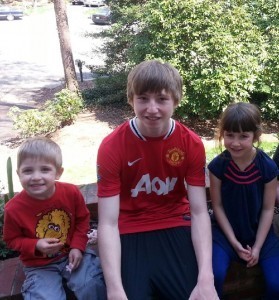
Orion and Sophia with their half-brother Nick
About the Author: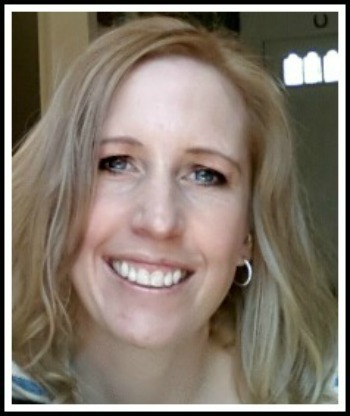 Jenny is a Canadian living in Virginia with her husband, two kids, and two black cats. Her latest book Who I Am: American Scar Stories launches 2 June 2014.
Jenny is a Canadian living in Virginia with her husband, two kids, and two black cats. Her latest book Who I Am: American Scar Stories launches 2 June 2014.
To find out more information or to join the American Scar Stories community, check out www.jennycutlerlopez.com. You can find quotes, portraits, and scar info at the book’s official Facebook page.
Semi-humorous and informative tweets for readers and writers @jcutlerlopez.
March 27, 2014
The Dark Side Of Being An Author
‘If it wasn’t for all that you tried to do, I wouldn’t know how just capable I am to pull through, so I want to say ‘thank you.’ Thanks for making me a fighter.’ ~ Christina Aguilera (Fighter) 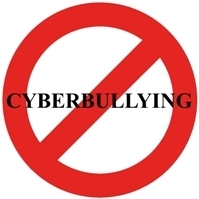
Know how you hear actors talk about fame? They say, ‘I only wanted to act. I didn’t want all this fame stuff.’ And we think, poor baby, right? All those millions, travel, stuff. It’s a real bummer. We feel like saying, ‘Shut up and be grateful!’ but I never do, especially when I see these celebs fighting for the privacy of their children.
I’m in no way famous. But as an author, it’s a good idea to have an understanding of the dark side of having your name out there.
I wrote my first book. Then my second. Then my most successful, my bestselling third book Broken Pieces. I started a social media/branding/marketing business (using my 20+ years of marketing plus my creative side = fun for me), and I love it. I love every minute of writing, connecting with readers and other authors, networking, working with amazing clients, occasional travel to writing conferences, writing regularly for the Huffington Post, San Francisco Book Review, Self Publisher’s Monthly, BookPromotion.com, my own two websites, a weekly radio show with AudioWorld’s Bennet Pomerantz, and even more I can’t name because I’ll scare myself at my to do list!
I do all this because I love sharing the tips I’ve learned with other authors, and if they can’t afford to pay me, I can provide at least provide great, free resources to help them.
I’m thrilled that I’m able to make a living for me and my family on my writing and business. I’m still in awe that people say they love my work and that I have fans. How is that even possible? I’m truly humbled by it all.
And then…come the haters. The bullies. The stalkers. The negative people who are, for whatever reason, upset about how I live my life or how I do business. I see this happen to my author friends all the time, too and I think…why? What is in it for the detractors?
Let’s deconstruct.
BULLIES
Last week, Bennet and I were honored to chat with Jay Donovan (owner of Techsurgeons) who specializes in helping people in bullying and stalker type situations, along with being a tech genius. You can listen to the show here (it’s only 30 minutes) and it gives really good insight into why people bully, the types of bullies (narcissists, psychopaths, etc) and how best to handle, particularly online.
Here’s what I learned: while it’s best to ignore a bully and not engage them directly, Jay does suggest letting others know that you are being bullied. There’s no reason to protect the bully, in other words. As someone who believe strongly in The Four Agreements, particularly to not take anything personally — I believe that what people say about us says far more about them than us.
Bullies typically have huge egos and very high self-esteem – as if we live in their kingdom and must obey their rules. Their favorite M.O. is spreading unfounded or unsupported rumors online.
What to do: whatever it is that you’ve always done. This latest person had an issue with something she assumed I’ve done on Twitter (something that I didn’t actually do), but rather than engage with her in a case of ‘she said, she said,’ I addressed it once on my Facebook wall so my friends and followers would know if they heard about it what the real situation is, and that was it. I wasn’t even going to write about it here, but others encouraged me to at least discuss the situation because so many others are dealing with it.
Remember, we cannot control what others say or do. It’s on us to be who we are and offer no explanation #AuthenticityRocks
STALKERS
Stalkers are different. They tend to have more psychopathic tendencies — they don’t care that someone is freaked out by them because that is their goal — their emotional value system is completely missing. Stalkers generally have low self-esteem and if their connection to their victim ends, they feel as if their identity has been stolen from them and they’ll do whatever they can to get it back.
In my own experience with stalkers, law enforcement advises NO CONTACT. Do not engage them in any way, block them at every turn, fix your privacy settings online to as strict as possible, and never give out your real home address — have a PO Box for any mail having to do with your online life. Or hire someone like Jay to help you.
As for how these situations have affected me? I’ve become far less trusting — something that I’ve struggled with anyway for most of my life due to childhood sexual abuse at the hands of a neighbor. Though that is a completely separate issue, I’ve been burned more than once for trusting that someone online is as ‘normal’ as they initially seem.
WHY?
If you find yourself asking the typical, ‘Why me?’ question in the face of these situations, look closely at your actions. Did you do something that set somebody off? Perhaps, though I avoid flame wars at all cost. Sometimes, we never know if a single tweet or statement can set someone off. While I don’t believe in self-censorship, I also don’t believe in flaming others. As adults, it’s on us to take responsibility for what we have done to contribute to difficult situations.
However, we are never, ever, ever responsible for someone else’s actions or behavior. It’s not our fault that someone as an issue with us. We don’t owe anybody an explanation for our life choices, especially some stranger we neither know or respect.
There’s definitely a dark side to being online and if we’re not careful, we can be pulled into it. Don’t. Walk away. Surround yourself with support and help. Handle it privately (block people, remove yourself from groups, fix your privacy settings, etc.), and then keep doing your thing. I’m not into inspirational stuff (I feel we all have to find our own inspiration, and a trite saying rarely helps), but I do believe we should trust ourselves.
Above all, remember that if someone is trash talking, hating, or bullying you, they are teaching you a lesson in how NOT to be #RiseAbove.
‘They can’t succeed in taking my inner peace from me. They can say all they wanna say about me. I’m gonna carry on.’~ Christina Aguilera (Keep On Singin’ My Song)
(There’s a line between someone hating on you and actually libeling and bullying. Take action: StopBullying.gov has tons of great info!)
Do you participate in #MondayBlogs (share any post, retweet others on Mondays)? Now’s your chance. Tweet or Facebook share any post on any Monday, share others — simple concept that creates more traffic and connections than you ever thought possible! Enter now to be our ‘Featured Blogger’ – totally free and super easy!
Related articles across the web
 Psychopathic and Psychotic Disorders Related to Cyber Stalking
Psychopathic and Psychotic Disorders Related to Cyber Stalking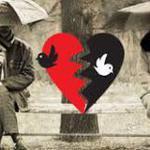 The Narcissist Stalker: Missing You or Mentally Unstable?
The Narcissist Stalker: Missing You or Mentally Unstable? How to: Deal with bullying in the workplace
How to: Deal with bullying in the workplace Inside the mind of a bully
Inside the mind of a bully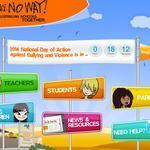 Bullying Under Attack in Australia
Bullying Under Attack in Australia 5 Signs You Are Being Stalked, a Guide Released Today by NoBullying
5 Signs You Are Being Stalked, a Guide Released Today by NoBullying Narcissists & Psychopaths Cause PTSD for their Victims
Narcissists & Psychopaths Cause PTSD for their Victims
March 24, 2014
#MondayBlogs Giveaway, Baby!
Since being created in 2012 by Rachel Thompson, #MondayBlogs has become amazing success and it is because of all of you that we can say that with a lot of pride and a big ol’ smile! As a thank you to all you wonderful #MondayBlog tweeps, we have a little announcement we’d like to make…
Who’s ready for a contest?
An ongoing, monthly contest?
What if I told you the prize is more exposure for you and your blog?
And it won’t cost you anything more than a bit of your time?
Interested?
Well, how would you like to be the Featured MondayBlogger? Wait, what’s that even mean, you ask?
Each Monday for one month, you could have a different tweet sent out by @MondayBlogs to all our kick ass followers and be featured on IndieBookPromo.com! Sound nice?
But wait, there’s more! Following you, the lucky winner, on Twitter, Facebook and sharing your featured weekly tweets would enter others into the next month’s contest!
Nice bit of exposure, don’t ya think?
That sound like something you’d be interested in doing?
If so, enter now!
Happy Sharing,
Rachel, Will, and Kate
Related articles across the web
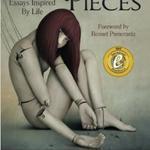 Giveaway, Baby!
Giveaway, Baby! Rafflecopter ONLY Giveaway Linky
Rafflecopter ONLY Giveaway Linky What is #MondayBlogs and Why Should Bloggers Participate?
What is #MondayBlogs and Why Should Bloggers Participate? What Is #MondayBlogs and Why Should Bloggers Participate?
What Is #MondayBlogs and Why Should Bloggers Participate? What Is #MondayBlogs and Does It Work?
What Is #MondayBlogs and Does It Work? What Works, What Doesn’t In Book Marketing
What Works, What Doesn’t In Book Marketing What Works, What Doesn’t In Book Marketing
What Works, What Doesn’t In Book Marketing What Is Monday Blogs and Does It Work?
What Is Monday Blogs and Does It Work? 4 Common Misperceptions About Self-Publishing Authors Need To Change NOW
4 Common Misperceptions About Self-Publishing Authors Need To Change NOW
HopeLine Recycle Program Provides Hope For More than the Environment by Karen Ogden
Today please welcome Karen of the HopeLine program from Verizon. Rachel has teamed up with the HopeLine program which connects survivors of domestic violence to vital resources, funds organizations nationwide and protects the environment. Read below to learn more about how you can help.
After upgrading my last phone I was left wondering what to do with my old one. Since it still worked, I thought I might send it to one of those places that run TV ads saying they’ll buy your used electronics. But to be honest, it sounded like the few bucks I would get wouldn’t even be worth the hassle. After doing a little research on how to properly recycle it, I found Verizon Wireless’ organization, HopeLine.
At first, I was a little skeptical – Why would I give my working phone back to the place I bought it?… What if they just throw a new battery in it and resell it? Turns out, I couldn’t have been more wrong.
Not only does the HopeLine program provide an environmentally friendly way to recycle your old devices, but at their own expense, Verizon refurbishes them. HopeLine then distributes the phones to victims of domestic violence and the organizations that help support them. Each phone is equipped with 3,000 anytime minutes, on Verizon Wireless’ nationwide coverage, call forwarding, call waiting, three-way calling, caller ID, voice mail and texting capabilities. With their “new” phone, the men, women, and children affected by abuse gain a completely free way to contact help at any time.
The company regularly provides funds for HopeLine to distribute among national and local domestic violence organizations. Earlier this year, when a Verizon store opened in Cape Cod, the program embraced the new community by donating $2,500 to Independence House, a local organization in Hyannis, MA that provides relief to victims of domestic abuse. A few days later, they donated $1,000 to Stronghold Atlanta, a women’s resource center aiding victims in the Georgia area.
They also encourage community members to volunteer, get involved, and most importantly, get informed. Recently, the University of Central Florida’s Victim Services took it upon themselves to raise awareness and hold a cellphone drive from early January to mid February. In just a few weeks, they had collected over 100 cell phones and two tablet devices.
Since 2001, HopeLine and its volunteers have helped donate over 151,000 phones to victims, and granted over $18 million towards the cause. If you want to help, each Verizon Wireless communication store is equipped with a donation center where you can drop off your phone. HopeLine also offers prepaid postage if you would like to mail in your contribution.
I know it sounds cliche, but it felt really good to know that instead of just gathering dust in my junk drawer, my phone is going to someone who really needs it. I think that if more people knew that such a small gesture could mean so much to someone, they would be more inclined to help. Personally I can’t remember the last time I’ve been in a position where I couldn’t reach out to someone for help, but it’s definitely something I won’t take for granted anymore.
About HopeLine:
Through HopeLine, the public can help prevent domestic violence by donating no-longer-used wireless phones and accessories in any condition from any service provider at any Verizon Wireless Communications Store, by mail or at special events held throughout the year.
Wireless phones given to HopeLine are refurbished and sold for reuse, generating proceeds for the program. Refurbished phones – complete with 3,000 minutes of wireless service and text-messaging service – are provided to local domestic violence agencies or local government and law enforcement agencies for use with their domestic violence clients. If donated phones are unsalvageable, they are recycled in an environmentally sound way under a zero landfill policy.
Donated phones can help victims of abuse feel safer and less isolated by giving them a way to call emergency or support services, employers, family and friends. Phone donations given locally benefit victims of abuse within that geographic area.
HopeLine also donates cash grants to nonprofit organizations to help fund education, programs, support services and community outreach.
Related articles across the web
 Verizon Wireless Donates To Detroit Shelter
Verizon Wireless Donates To Detroit Shelter Recycling Cell Phones for Domestic Violence
Recycling Cell Phones for Domestic Violence Verizon Wireless Donates $5,000 To Oakland County Nonprofit
Verizon Wireless Donates $5,000 To Oakland County Nonprofit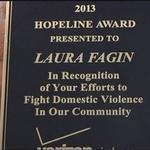 Verizon donates in honor of domestic violence victims
Verizon donates in honor of domestic violence victims Comment on Where to Donate Your Used Tech by Harleena Singh
Comment on Where to Donate Your Used Tech by Harleena Singh Colts to Host Hopeline from Verizon Phone Collection
Colts to Host Hopeline from Verizon Phone Collection
March 17, 2014
Interview with @JasonCMcIntyre
Today please join me in welcoming author Jason McIntyre to the blog! Jason is the author of numerous novels including Thalo Blue and On the Gathering Storm. Learn more about Jason’s publishing journey in the interview below!
1. Can you sum up your novels in three words?
Intense, real, entertaining
2. Both Thalo Blue and On the Gathering Storm feature young characters at the beginning of adulthood, what drew you to writing characters “on the brink of true adulthood?”
The process for writing both of those books began percolating when I was in that space so it was a natural way to approach it. I was a young adult and very aware of how the world, my upbringing, my socio-economic status all played a role in how I was maturing and making my way in the world.
And since true adulthood doesn’t necessarily happen at a specified age, I was interested in looking at how very adult situations would affect characters who were less experienced and, really, only had their gut reactions to teach them how to handle some very dire consequences.
Readers will notice my catalogue of stories branching out now. I have parents and seniors, men and women, young children, all as central characters in my books. It’s important to me not be pigeonholed as the teller of only one kind of story so it’s been a fulfilling process as I’ve matured.
3. In your publishing journey you have published audiobooks, what do you like about this format?
It’s another vehicle for getting stories to an audience. The arsenal of marketing vehicles is growing, with the proliferation of online reading services (Scribd, for example), author blogs and social media. The fact that voice talent and sound editing facilities are becoming more accessible to individual authors is a boon to the work we’re doing. Each piece healps in creating an entire marketplace for an author’s brand.
Plus, let’s face it, having a work you wrote come to life in this way is exceptionally cool. What storyteller wouldn’t want to make his or her story available in this way?
4. Along with your novels you also publish novellas. What drew you to publishing shorter work?
The great thing about e-material is that boundaries of format are breaking down. In the past, publishers dictated a normalcy of word count and genre. Science fiction books should be about this thick. Romance should be this long and have this many complications, this many characters, and so on.
Not only is the e-world of publishing allowing the bypass of traditional genre ideology, it’s also letting creators create in a more natural way. In the world of writing, it’s essentially freeing an author to write the story to the exact length it needs to be and not pad it to meet the arbitrary demands of an artificial gatekeeper.
Plus, it seems that readers like to consume a lot of material, perhaps moreso than at any other time in publishing’s history. They’re buying more works and getting through them, since the limits of their availability are falling. Shorter works get to market even faster than a five or six-hundred page book and that means it’s being read faster and that reader is looking around for their next fix. In the e-world, a shorter novel, novella or even short story can mean that a reader will consume more of your work and get a broader sampling of what you have to offer.
5. What is your favorite “In the Dark” episode to date?
Great question. I like the Cookie episode because it mixes my goofy sense of humour with a rather dark idea. It’s also quite visual and I think that’s the best use of the video podcast idea — something that is more than just a talking head. I probably got more hits on that episode than the others, so it likely connected better.
6. On “In the Dark” episode four you answered the question of suspense v. horror. Can you sum up your take on this question for me readers?
My take is pretty straightforward. I present it somewhat amusingly in the episode but here it is in nutshell-form. Horror is creating a scenario that is ugly and only gets worse. Your character either does or has done to him the unthinkable and, as an audience, we see as-real-as-possible effects of that action.
Suspense is asking the question about what those real-as-possible effects might be. It’s asking the what-if question about what would happen once the scenario’s true ugliness comes to fruition. If you can make the audience question what ugliness *may* come from a scenario, and then keep tweaking it, you have effective suspense. By the end, though, you may have a story that relies on pieces of both horror and suspense. If done effectively, the audience doesn’t know and doesn’t care about which part is which.
7. What drew you to writing suspense?
Truthfully, I didn’t make a conscious decision to write what I write. Readers of my catalogue will know that nothing is the same as anything else and that I’m truly not sitting on only one shelf in the bookstore.
Suspense is really a tenet of all good storytelling. All genres–if told well–should have a large element of suspense. Romance: will they get together? Science Fiction: what really is out there? Western: Are people truly this ugly to one another? And what will happen when that gun goes off? Literary: If life is that hard, and this character is so damaged, how will he ever make it through this ordeal?
8. What is your favorite type of cookie?
Mmmm! I love all cookies and I do not discriminate. However, as of now, I have a love-on for a particular kind of cookie we call the Whoopie Pie. It’s a store-bought cake mix without the leavening agent. You mix it like a cake and then pour it in cookie-sized discs on a cookie sheet, ice the middle and sandwich two discs together. When it’s baked, it’s soft, halfway between a moist cake and a chewy cookie. My fave is a butter-pecan with cream cheese icing to finish it off.
9. If you had to pick one quote to describe your life what would it be?
“Not all who wander are lost.”
10. What is your favorite way to connect with readers (blog, email, Twitter, Facebook, etc)?
When it gets to the point of email connectivity with a reader, that’s pretty satisfying. The facade of the public world that social media creates is gone and readers can get pretty honest about what drives them to read your work. It’s also a place where appreciation for the craft and for winning a contest or spending time conversing with a reader can be its most rewarding.
Facebook and Twitter are great for spraying information about releases and such, and they offer good interaction on a more personal level. A site like Goodreads is wonderful for getting one-on-one interaction directly with readers who have no agenda in the industry, and, frankly, just want a good yarn. I like all of those places and I’ve been blessed to find great readers, great peers and great bloggers to share the journey with.
About Jason McIntyre: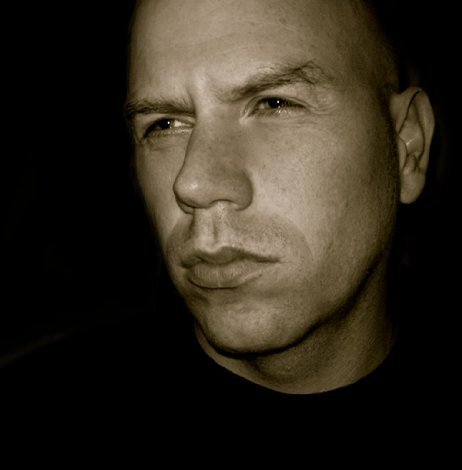 JASON MCINTYRE is the #1 Kindle Suspense author of THE NIGHT WALK MEN, bestsellers ON THE GATHERING STORM and SHED, plus the multi-layered literary suspense THALO BLUE. His short fiction has appeared in numerous magazines and won several awards.
JASON MCINTYRE is the #1 Kindle Suspense author of THE NIGHT WALK MEN, bestsellers ON THE GATHERING STORM and SHED, plus the multi-layered literary suspense THALO BLUE. His short fiction has appeared in numerous magazines and won several awards.
His current release is the full-length follow-up novel to THE NIGHT WALK MEN called THE DEVIL’S RIGHT HAND, available now.
Learn more and connect with the author at www.theFarthestReaches.com or on Twitter and Facebook.
Related articles across the web
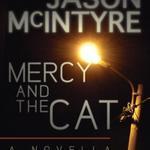 Book Feature: Mercy and the Cat by @JasonCMcIntyre
Book Feature: Mercy and the Cat by @JasonCMcIntyre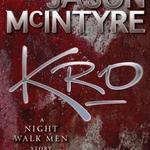 #Review: Kro, by @JasonCMcIntyre
#Review: Kro, by @JasonCMcIntyre Media Audiences- Task 4
Media Audiences- Task 4 103 Free Kindle UK Books (Mar 17)
103 Free Kindle UK Books (Mar 17) Gingerbread Cut Out Cookies
Gingerbread Cut Out Cookies Pistachio Cake Cookies
Pistachio Cake Cookies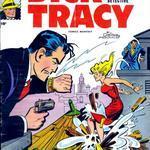 Top 10 Crime Comics
Top 10 Crime Comics
March 14, 2014
Giveaway, Baby!
Thanks to the wonderful Amberr Meadows of Like a Bump on a Blog for putting together this giveaway! You can win my books and an Amazon gift card. Details below!
Bestselling Books by Author Rachel Thompson, $50 Amazon GC and $25 Amazon GC Giveaway (2 winners!)

One lucky winner will receive a $50 GC and a 2nd winner $25. Both will receive the books!
Welcome to the pre-spring giveaway where two winners will receive bestselling books from successful author, Rachel Thompson, and in addition, one winner will receive a $50 Amazon gift card and the second winner will receive a $25 Amazon gift card. I’ll share a little information about the author and her books, and then we’ll move on to the fun part!
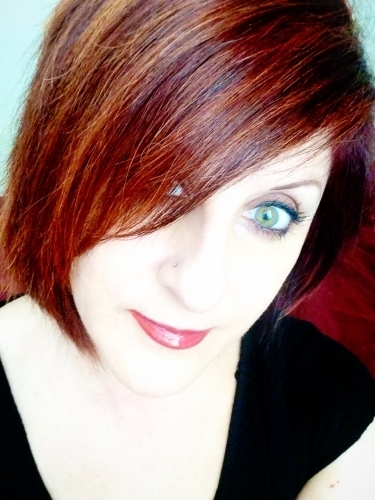
Author Rachel Thompson
About the author: Rachel Thompson is the author of the award-winning Broken Pieces, as well as two additional humor books, A Walk In The Snark and Mancode: Exposed. She also owns BadRedhead Media, creating effective social media and book marketing campaigns for authors. Her articles appear regularly in the San Francisco Book Review (BadRedhead Says…), 12Most.com, bitrebels.com, BookPromotion.com, and Self Publishing Monthly. She hates walks in the rain, running out of coffee, and coconut. She lives in California with her family.
Check out this amazing trailer for Broken Pieces, and you’ll most certainly want to read the book…
The books up for grabs will be Broken Pieces signed by Rachel Thompson and sent in paperback form, and A Walk in the Snark & The Mancode: Exposed will be gifted by the author electronically. If an entrant outside of the US and Canada is one one of the winners, they will receive an electronic copy of Broken Pieces in lieu of the paperback version.
Now to the giveaway part! This giveaway is open to entrants worldwide, so if you’re ready to enter, do so via the Giveaway Tools form just below. Good luck and happy winning!!
Entry-Form
Please share this post with others who’d like to learn more!
Related articles across the web
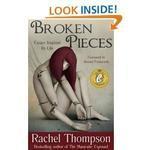 Broken Pieces (Essays Inspired By Life) [Kindle Edition]
Broken Pieces (Essays Inspired By Life) [Kindle Edition]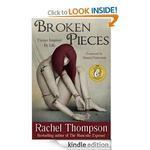 #AmReading Walk in the Snark by Rachel Thompson @RachelintheOC
#AmReading Walk in the Snark by Rachel Thompson @RachelintheOC Writer Quirks – Rachel Thompson
Writer Quirks – Rachel Thompson Bestselling Books, $50 Amazon GC and $25 Amazon GC #Giveaway (2 winners!)
Bestselling Books, $50 Amazon GC and $25 Amazon GC #Giveaway (2 winners!) Fiction vs Nonfiction: Which Is Easier To Write?
Fiction vs Nonfiction: Which Is Easier To Write? Broken Pieces: Book Review and Author Interview
Broken Pieces: Book Review and Author Interview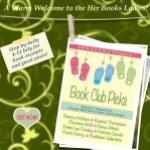 Her Books Presents: Rachel Thompson
Her Books Presents: Rachel Thompson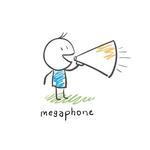 How To Effectively NOT Sell Your Book
How To Effectively NOT Sell Your Book Writer Quirks (and Advice!) from Rachel Thompson
Writer Quirks (and Advice!) from Rachel Thompson Just Another Cancer Story – A Guest Blog for @RachelintheOC
Just Another Cancer Story – A Guest Blog for @RachelintheOC



